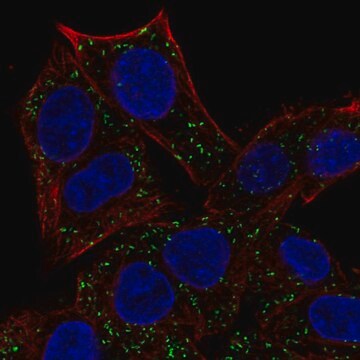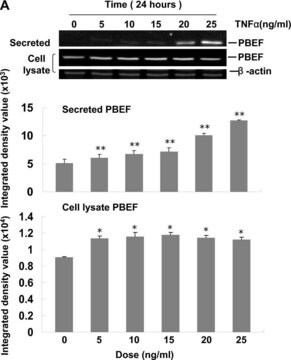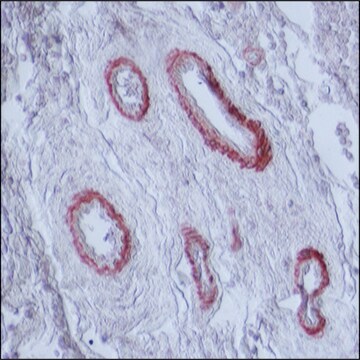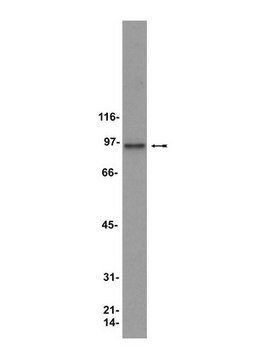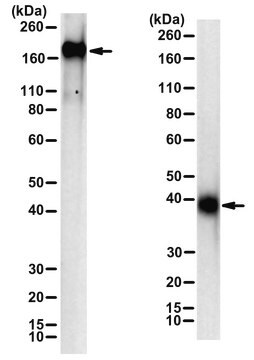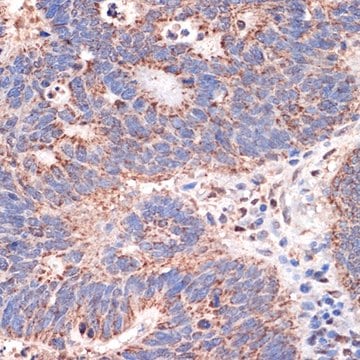MABC953
Anti-Prohibitin-2/PHB2 Antibody, clone 7F8E3
clone 7F8E3, from rat
Synonym(s):
Prohibitin-2, B-cell receptor-associated protein BAP37, D-prohibitin, Repressor of estrogen receptor activity, Prohibitin-2/PHB2
About This Item
Recommended Products
biological source
rat
Quality Level
antibody form
purified immunoglobulin
antibody product type
primary antibodies
clone
7F8E3, monoclonal
species reactivity
rat, monkey, human, mouse
technique(s)
immunocytochemistry: suitable
immunohistochemistry: suitable (paraffin)
western blot: suitable
isotype
IgG2aκ
NCBI accession no.
UniProt accession no.
shipped in
wet ice
target post-translational modification
unmodified
Gene Information
human ... PHB2(11331)
General description
Specificity
Immunogen
Application
Apoptosis & Cancer
Apoptosis - Additional
Immunocytochemistry Analysis: 4 µg/mL from a representative lot detected Prohibitin-2/PHB2 in A431 and HUVEC cells.
Immunohistochemistry Analysis: A 1:1,000 dilution from a representative lot detected Prohibitin-2/PHB2 in human breast and mouse liver tissue.
Immunohistochemistry Analysis: A representative lot detected upregulated Prohibitin-2 immunoreactivity at the glutathione S-transferase placental-form–positive (GST-P+) hepatocellular carcinoma (HCC) foci in frozen liver sections from rats subjected to hepatocarcinogenesis induction by N-nitrosodiethylamine (DEN) and Phenobarbital (PB) treatment (Kakehashi, A., et al. (2011). Toxicol Sci. 119(1):61-72).
Quality
Western Blotting Analysis: 0.5 µg/mL of this antibody detected Prohibitin-2/PHB2 in 10 µg of rat C6 glioma cell lysate.
Target description
Physical form
Storage and Stability
Other Notes
Disclaimer
Not finding the right product?
Try our Product Selector Tool.
Storage Class
12 - Non Combustible Liquids
wgk_germany
WGK 1
flash_point_f
Not applicable
flash_point_c
Not applicable
Certificates of Analysis (COA)
Search for Certificates of Analysis (COA) by entering the products Lot/Batch Number. Lot and Batch Numbers can be found on a product’s label following the words ‘Lot’ or ‘Batch’.
Already Own This Product?
Find documentation for the products that you have recently purchased in the Document Library.
Our team of scientists has experience in all areas of research including Life Science, Material Science, Chemical Synthesis, Chromatography, Analytical and many others.
Contact Technical Service

